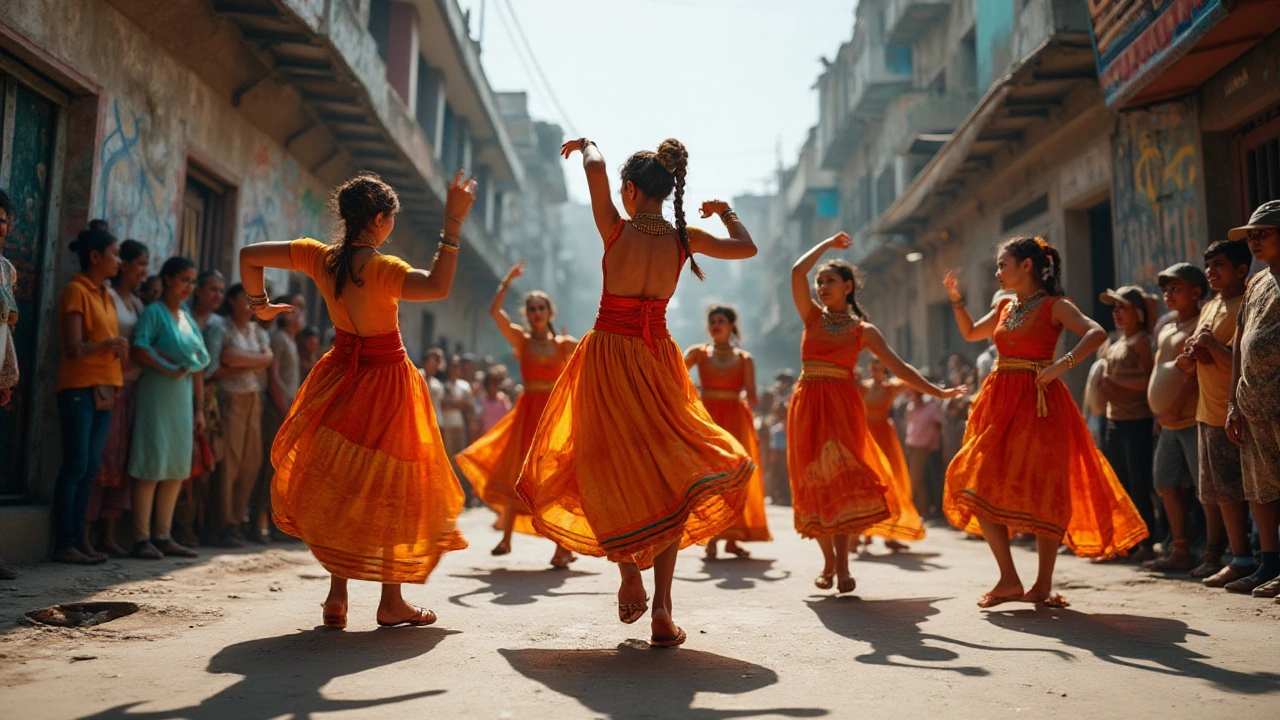Street Word: What It Means in Tamil Culture and Beyond
When people talk about street word, the informal, often rhythmic phrases spoken in daily life, markets, and folk performances across Tamil Nadu. Also known as colloquial Tamil expressions, it’s not just slang—it’s the unfiltered heartbeat of a culture that speaks through rhythm, rhyme, and resistance. You hear it in the chants of temple processions, the calls of street vendors, the teasing banter between elders at tea stalls. These aren’t random words. They’re coded history, whispered wisdom, and cultural glue.
Street word connects directly to Tamil folklore, the oral traditions passed down through generations in villages and urban slums alike. Think of bol banao, the nonsense singing in Tamil folk music that uses rhythmic syllables to carry emotion without literal meaning. It’s not random noise—it’s a cousin to street word. Both rely on sound, repetition, and cultural context to mean more than the words say. Just like how a grandmother’s saying about rain might mean ‘be careful’ or ‘prepare for change,’ street words carry layers. They’re shaped by caste, class, and community, and they shift with time. A phrase that meant rebellion in the 1970s might now be a joke among teens.
These expressions don’t live in books. They live in Indian folk music, the raw, unpolished sounds that rise from fields, festivals, and fishing boats. You’ll find them in Theru Koothu performances, where actors use exaggerated lines to mock power, or in Karakattam dancers who chant while balancing pots on their heads. The words are sharp, funny, and sometimes dangerous—because they say what formal language won’t. In Tamil Nadu, street word is how people keep their identity alive when official history forgets them. It’s how a fisherwoman describes the sea’s mood, how a street vendor jokes about the price of onions, how a child learns to curse without saying a bad word.
What you’ll find in the posts below isn’t a dictionary of slang. It’s a window into how language breathes in real life. You’ll see how street word ties into Diwali chants in Tamil households, how folk songs use nonsense syllables to mimic emotions, and how even global music revenue charts can’t capture the value of a phrase that’s been sung for 200 years. These aren’t just articles—they’re recordings of voices that rarely make it to the screen, the page, or the archive. Listen closely. The next time you hear a Tamil vendor call out their goods, you might just hear a line that’s older than your grandparents.
